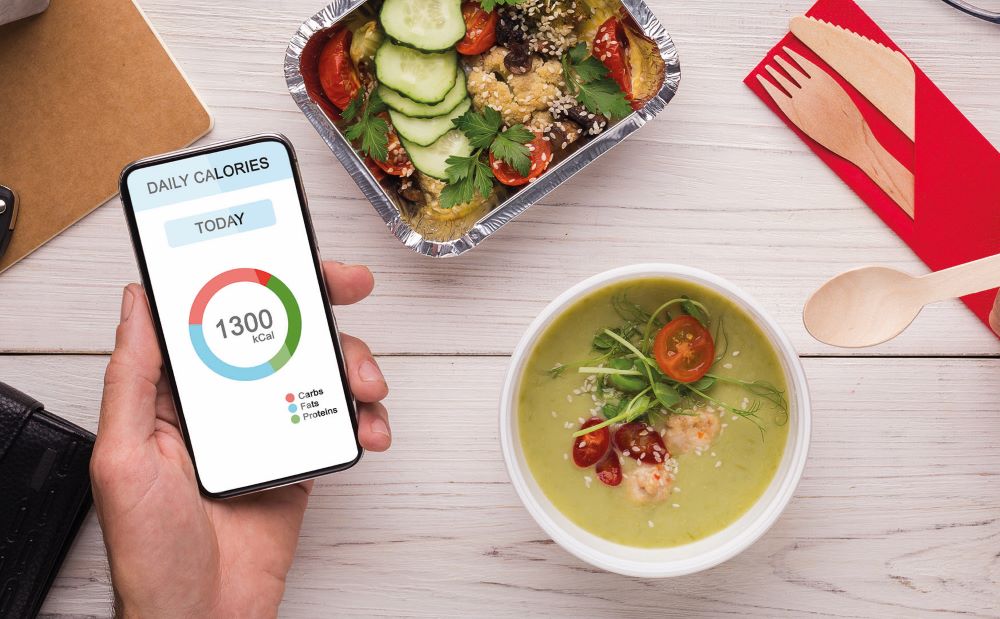As calories on restaurant menus become law in England, will this help us make better choices when it comes to nutrition or will it encourage unhealthy eating patterns and disorders?
Related: 10 food & nutrition trends to boost your health in 2022
Imagine the scene: after a long week you’ve sat down in your favourite restaurant for a well-deserved meal and glass of wine. Then, as you check the menu, you’re bombarded with how many calories you’re about to consume.
We all know – consciously or not – that when we eat in a restaurant or order a takeaway, we’ll likely be consuming more calories than we would be from a home-cooked meal. The hidden ingredients, sauces and lack of portion control are all factors. However, is adding calories to menus an effective way for us to be more sensible with our choices? Or, could it be dangerous to our mental health?
Related: What is body dysmorphia? Causes and symptoms of BDD
The new law: why are calories now on menus?
In April, the law came into effect which made it a legal requirement for all out-of-home food businesses in England, with 250 staff or more, to list the calorie count of each meal on their menus. The government passed the law in a bid to tackle obesity and help people make ‘more informed or healthier choices’ when they’re eating out.
But the new law came with a lot of criticism. Chefs and restaurant owners were worried it could stop us visiting their restaurants, part of an already struggling industry since Covid. And eating disorder charities said that it’s irresponsible of the government to introduce something that could trigger those who are already anxious about how many calories they’re consuming.

Does calorie counting encourage healthy eating?
So, should we all be calorie counting? Or, will this take away the enjoyment of eating out? According to the NHS, the recommended calorie consumption for a woman is 2,000 a day, with calories from food converting into energy and helping the body function correctly. If you consume too many calories you could start to put on weight. Plus, studies show that if you reduce this 2,000-calorie intake by 500 a day, you can lose up to one or two pounds a week.
However, it’s not an exact science. Other factors such as metabolism, age and exercise also influence weight gain or loss. ‘Using the numbers as a tool to help lose or manage your weight may be beneficial, but it is not the ultimate answer to defining nutrition and health,’ explains Rhiannon Lambert, registered nutritionist and author of The Science of Nutrition (DK, £20). Lambert also believes that all bodies are unique. Therefore, ‘it is best for you to make informed decisions, that are best suited to you, about what, when and how to eat responsibly for health and happiness’.
Related: How to boost your metabolism: nutrition & exercise tips
Nutrition verses calories
On an average menu, most main meals have between 800 and 1,500 calories. This leaves very little left for the two other meals of the day. Experts are concerned that restaurant-goers will put too much importance on calorie intake, rather than what they’re eating. ‘Calories are not equivalent to nutritional values. So, a dish with avocado will be high in calories albeit super healthy and nutritious,’ says nutritional therapist Anne Iarchy. ‘Nuts, seeds and olive oil are full of nutrients, vitamins and minerals, plus fibre and good healthy fats, which makes them high in calories.’
Lambert also believes that, when it comes to nutrition, calories are determined by an outdated calculation. ‘These numbers should be taken as an estimate rather than the exact amount you will get from the food, as the calorie content displayed can be up to 30 per cent inaccurate,’ she explains. ‘You may not absorb the full amount of energy or nutrients that are released from foods due to individual differences, such as your gut health and intestine length or how much of the nutrients you absorb.’
Related: Yoga for gut health – best poses for IBS & bloating
Larchy goes on to add: ‘Calorie counting is an unhealthy way of looking at food. Often, one brand of the same item doesn’t contain the same number of calories as another.’ Lambert adds that it could change the way we feel about eating out in restaurants, too: ‘Eating out, and food in general, is often about spending time with friends and family, as well as enjoyment and pleasure.’
‘Calorie content displayed can be up to 30 per cent inaccurate’

Calories on menus and eating disorders
Calories on menus could have a more detrimental effect on others who are already counting calories religiously at every meal. An estimated 1.25 million people in the UK suffer from eating disorders, according to charity Beat.
When the law came into effect, the eating disorder charity revealed they were ‘extremely disappointed’. They believe the move will ‘cause anxiety and distress’ for people affected by eating disorders. Tom Quinn, the charity’s director believes the policy could also lack understanding of the outcome.
‘We know from the people we support that including calories on menus can contribute to harmful eating disorder thoughts and behaviours worsening,’ he explains. ‘For instance, it can increase a fixation on restricting calories for those with anorexia or bulimia. Or, it can increase feelings of guilt for those with binge eating disorder. There is very limited evidence the legislation will lead to changed eating habits among the general population.’
So, should we just ignore calories? Lambert believes that the way forward for us all is to educate ourselves on nutrition, rather than how many calories we’re eating. ‘We shouldn’t be relying solely on calories,’ she says. ‘Instead, we should start to become aware of how to eat healthily for life, not just for weight loss.’
Words: Sarah Finley | Images: Shutterstock








